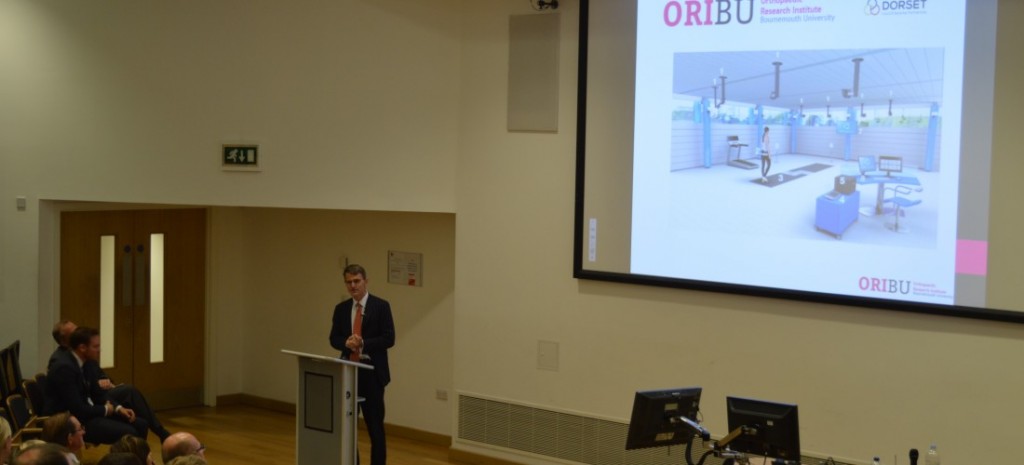BU’s new Orthopaedic Research Institute (ORI) was launched on Wednesday 14 October, at an event attended by researchers, health care practitioners and long-time supporters of Professor Rob Middleton and Associate Professor Tom Wainwright’s research. ORI will be formally open for business from Monday and already has a number of exciting projects to work on.
Welcoming attendees to the reception, Vice-Chancellor of Bournemouth University, Professor John Vinney said, “The fusion of education, research and professional practice is central to the work of both Bournemouth University and ORI, our newest research institute.
Professor Rob Middleton and Associate Professor Tom Wainwright bring a wealth of research expertise and clinical knowledge, which is already being recognised on a national and international scale. We are delighted to welcome them to BU and look forward to seeing ORI’s research and global reputation develop.”
Professor Rob Middleton, Head of ORI, described the ten year history of research that he and Associate Professor Tom Wainwright bring to ORI and Bournemouth University. Previous projects, involving industry, researchers from Southampton University and local hospitals have explored a wide variety of clinical problems and have led to significant improvements in patient care. These range from exploring optimum size for the metal or ceramic ball used in hip replacement operations to developing a new enhanced recovery pathway for post-surgical care and the use of computer navigation in surgery.
Looking to the future work of ORI, Professor Middleton said, “We are extremely grateful for the support of the Dorset Local Enterprise Partnership (LEP), whose financial backing will enable us to purchase state-of-the-art gait analysis equipment and establish new research labs at BU.
Over the next three years we will be developing ORI’s research strengths, working with colleagues across the BU Faculties in areas such as engineering, computing, psychology and data analytics as well as appointing a new Research Fellow and nine PhD students. Through this increased capacity, we will be able to build on our links with industry, clinicians and local hospitals and produce research which will make a significant impact to patient outcomes.”





